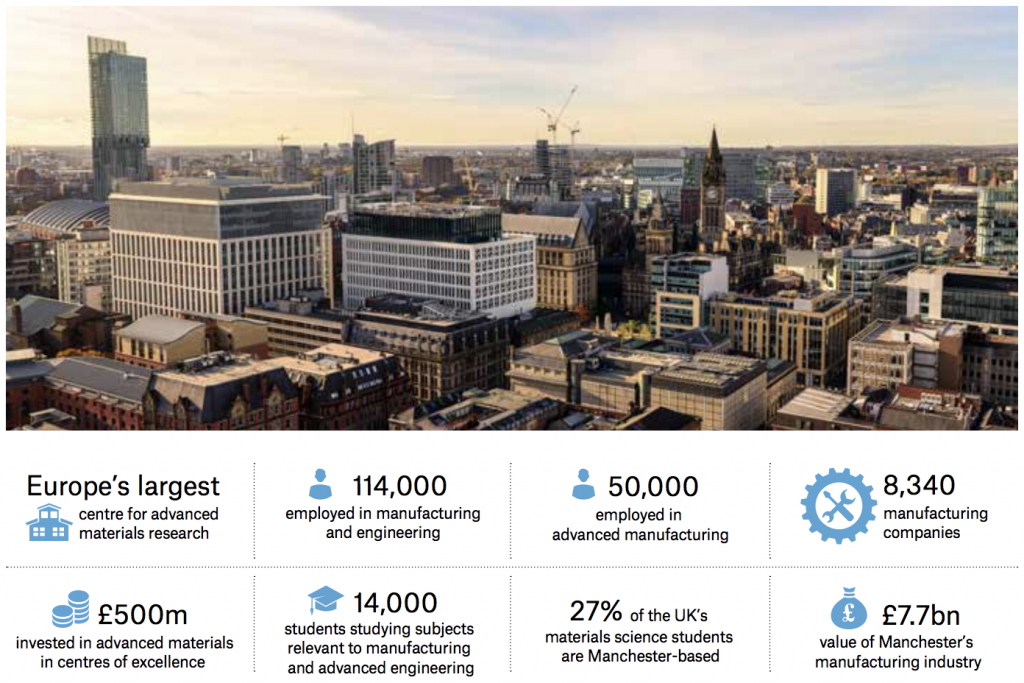Placemaking and Productivity
By Guy Pearson
Date
February 7, 2018Greater Manchester is the major city region outside London and has a key role to play in the UK’s advanced industrial economy. To be successful the city must compete with other advanced economies, and central to this is the need to innovate– constantly generating new ideas, technologies, processes and products. But how? Where does the next graphine or programmable computer (both Manchester innovations) come from?
Writers such as Richard Florida or organisations such as the Brookings Institution are increasingly recognising the economic importance of good placemaking and the creation of social settings where people can meet, share ideas, spark new thinking and collaborate on ‘’the next big thing’’.

Click here to view larger image. Image Credit: Invest in Manchester
As Manchester sets out its stall to become a national hub of advanced manufacturing it must recognise the importance of good spaces and places. Manufacturing must compete with I.T. for the best people and, as much as it must provide advanced manufacturing floorspace and the technical infrastructure to support it, it must also focus on the surrounding environment and design in places and spaces that appeal to young, mobile, tech-savvy knowledge workers. This builds on the recognition of the value of leisure and cultural space as part of the mix in commercial developments and the importance of planning for this when shaping an offer.
This thinking must be extended to support the fostering of innovation, and specifically addressed in planning for advanced manufacturing environments. These will need to accommodate the needs and lower densities of a manufacturing environment, but must also include local facilities, good transport, green spaces and links to housing and education, all within a high quality environment. The challenge is to create, and take, the opportunities to make vibrant, busy, connected places.
This is not to simply satisfy a general placemaking desire but because in order to realise the economic potential of advanced manufacturing, spatial character matters. It is central to creating environments that are attractive to innovative companies and educated workforces and in fostering the ‘third spaces’ where people interact and innovation happens.
Guy is qualified as an architect and an urban designer at IBI Group, a globally integrated design and technology practice. His interest and skills lie in the links between the two disciplines, including masterplanning and designing mixed use, high density urban neighbourhoods. Guy led IBI’s team which defined the spatial vision for Sheffield City Region’s Advanced Manufacturing Innovation District (AMID), together with project partners including the Brookings Institution.







